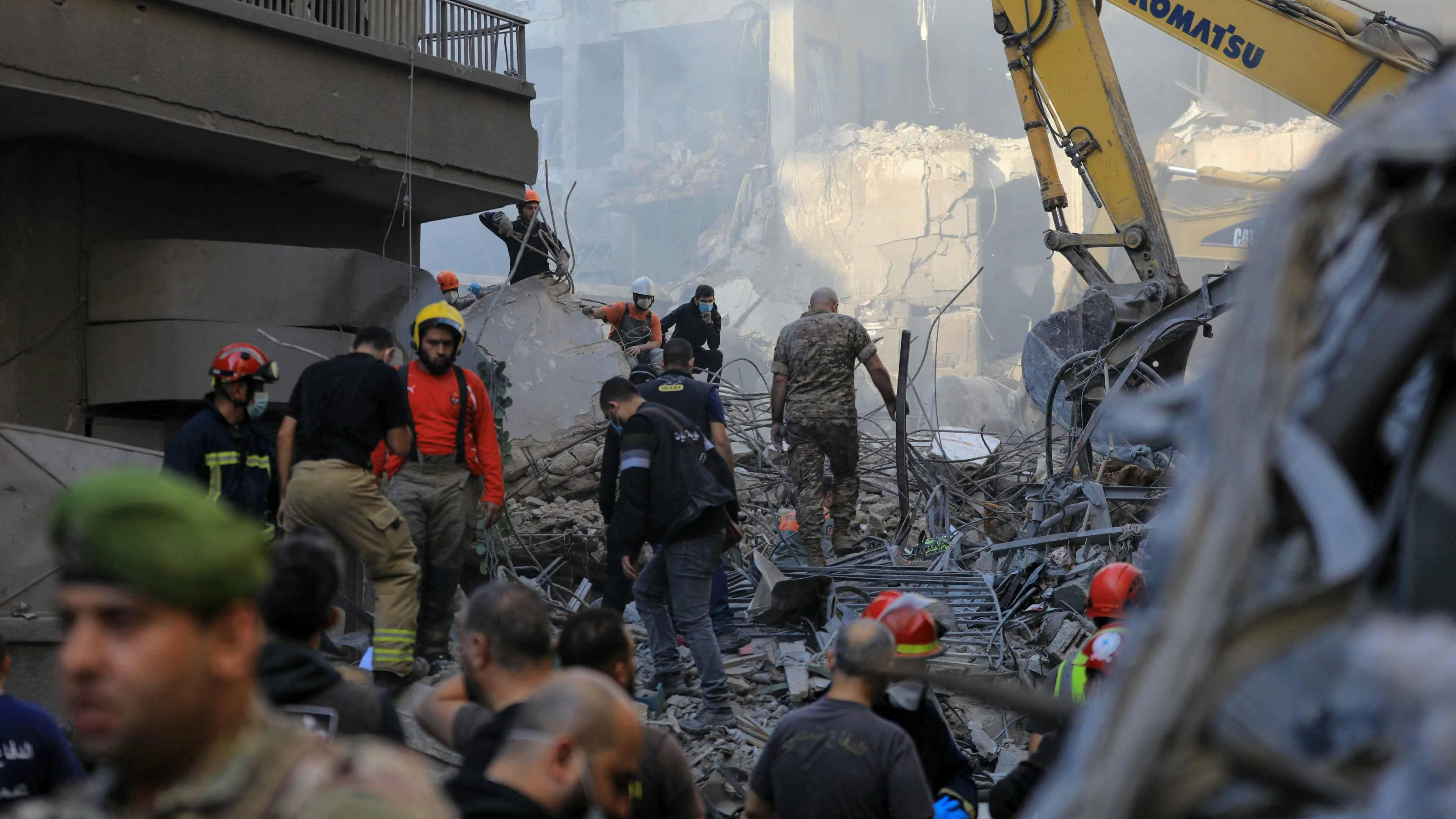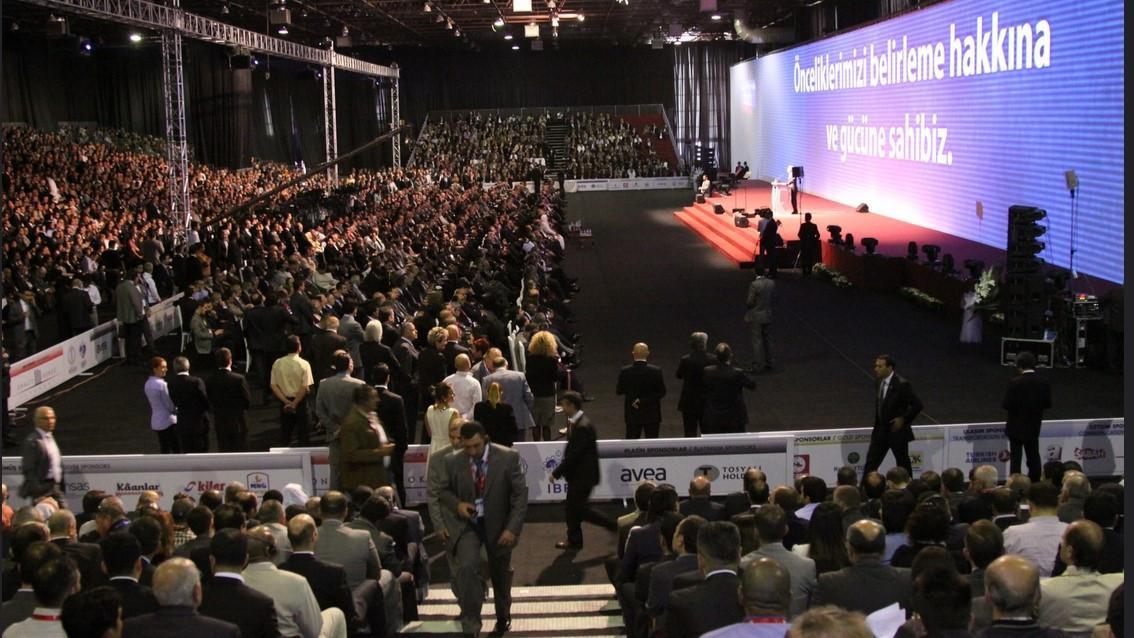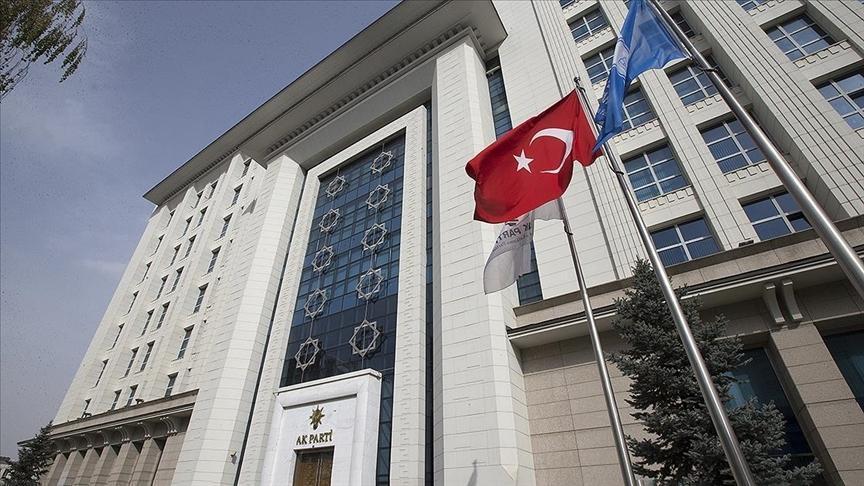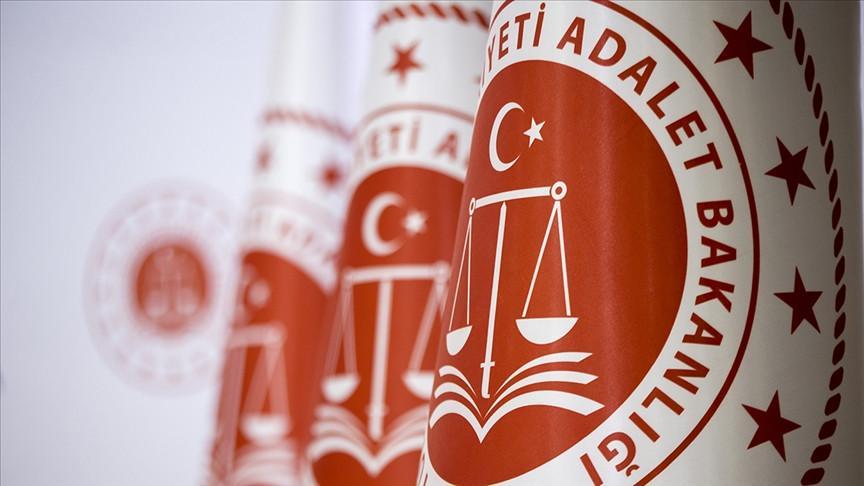French satirical paper 'firebombed' after Mohammed cartoon
PARIS - Agence France-Presse
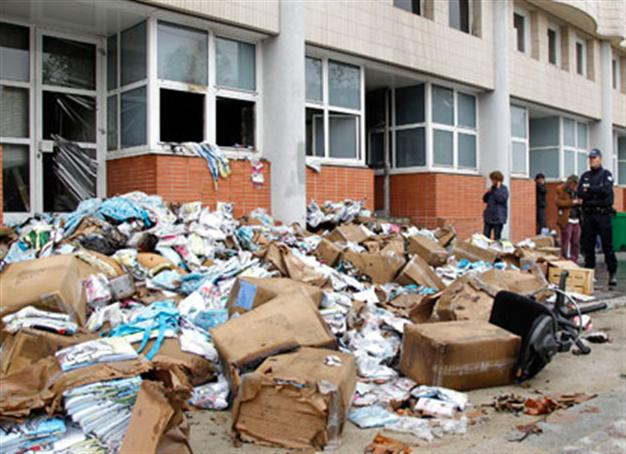
French police stand in front of the damaged offices of French satirical magazine Charlie Hebdo in Paris November 2, 2011. REUTERS photo
The offices of a French satirical newspaper that published a special Arab Spring edition with the Prophet Mohammed as "guest editor" were destroyed in a suspected firebomb attack Wednesday, police said.
Charlie Hebdo published a special edition Wednesday to mark the Arab Spring, renaming the weekly newspaper Charia (Sharia) Hebdo for the occasion and featuring a front-page cartoon of the prophet saying: "100 lashes if you don't die of laughter!" The newspaper's website also appeared to have been hacked on Wednesday, with its regular home page replaced with a photo of the Grand Mosque in Mecca and a message reading: "No god but Allah".
French officials were quick to denounce the attack and offer support to the newspaper.
"Freedom of the press is a sacred freedom in our country and everything must be done to preserve it," Interior Minister Claude Gueant told AFP.
"This is why, whether we like Charlie Hebdo or not, every French person must this morning feel solidarity with a newspaper that, through its existence and the way it operates, expresses freedom of the press." Police said the fire at the newspaper's offices started around 1:00 am (0200 GMT). No one was injured in the blaze, which a police source said was suspected to have been caused by a petrol bomb.
The magazine's publisher, known only as Charb, said he was convinced the fire was linked to the special edition.
"On Twitter, on Facebook, we received several letters of protest, threats, insults," which had been forwarded to the police, he said.
"Our problem now is to be able to put a paper out next Wednesday," he said. "There is soot everywhere, the computers are in my opinion dead, the electrical system is melted." "This is the first time we have been physically attacked, but we won't let it get to us." In a statement, the newspaper's editorial department said it was "against all religious fundamentalism but not against practising Muslims." "We are for the Arab Spring, against the winter of fanatics," it said.
The weekly had said it would publish a special edition to "celebrate" the Ennahda Islamist party's election victory in Tunisia and the transitional Libyan executive's announcement that Islamic Sharia law would be the country's main source of law.
It would feature the prophet Mohammed as guest "editor", the magazine said.
As well as the cover cartoon, a back-page drawing featured Mohammed wearing a red nose and accompanied by the words: "Yes, Islam is compatible with humour." The depiction of the prophet's face is strictly prohibited in Islam.
Charb on Tuesday rejected accusations that he was trying to provoke.
"We feel we're just doing our job as usual. The only difference is that this week, Mohammed is on the cover and that's quite rare," he told.
A Paris court in 2007 threw out a suit brought by two Muslim organisations against Charlie Hebdo for reprinting cartoons of Mohammed that had appeared in a Danish newspaper, sparking angry protests by Muslims worldwide.
Pieces of paper and computers were strewn outside the newspaper's offices in eastern Paris after the fire, and windows and glass doors were broken at street level and on the first floor.
The head of the French Council of the Muslim Faith, Mohammed Moussaoui, condemned the attack.
"If this was a criminal fire, we firmly condemn it," he told.
Paris Mayor Bertrand Delanoe said he was "disgusted" with the attack.
"I want to condemn in the strongest possible terms this act of violence that is also an act of violence against freedom of expression," he told RMC radio.
"We can disagree with Charlie Hebdo's edition today but we are in a society that needs freedom of expression," Delanoe said.
The managing editor of left-leaning newspaper Liberation, Nicolas Demorand, said in a Tweet that his newspaper was inviting Charlie Hebdo's writers to work in Liberation's offices until they could find a new home.
The Secretary General of the Organization of Islamic Cooperation, OIC, condemned the magazine for the "publication of the insulting cartoon" calling it "an outrageous act of incitement and hatred and abuse of freedom of expression."
His statement further advised Muslims to "exercise restraint" and the editors of the publication to "assume full responsibility for their indiscretion, in publishing the insulting cartoon and other material that solely and clearly amounted to an act of hatred and incitementof religious intolerance."


